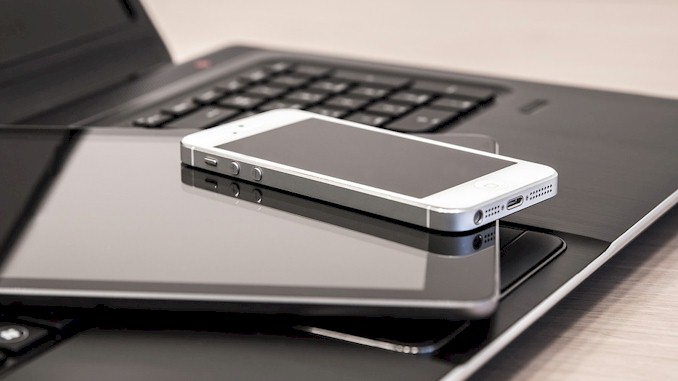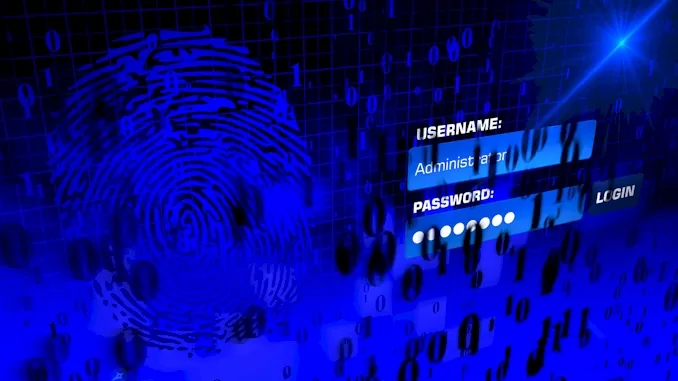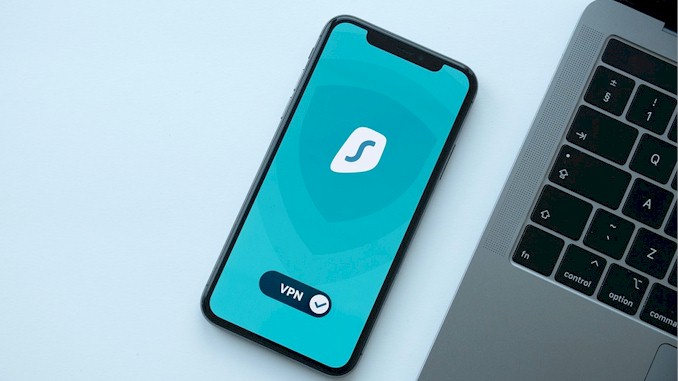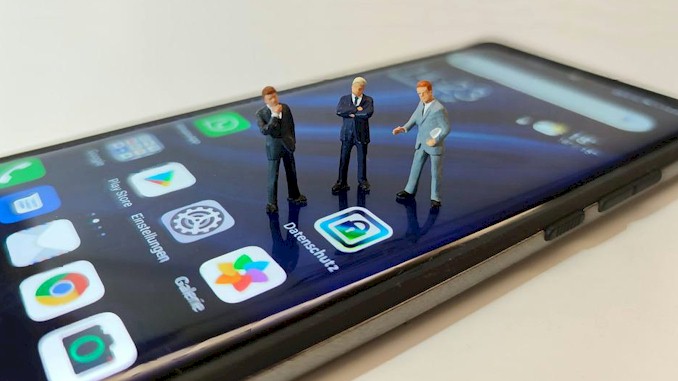Does VPNs protect all your communication on the device
If you are using a VPN, I’m sure you know that it can encrypt all data that travels through the VPN connection. Since our lives are connected to the internet all the time, you likely want to avoid online dangers and may wonder whether the VPN you are using can protect all communications that occur on your smartphone, laptop, or tablet. You don’t want information about you and your daily life collected by unknown parties who could potentially use it to harm you. I find myself in the same situation as you, so I have studied this subject extensively, and this post is the result of that effort.
VPNs safeguard the primary communication channels of your everyday devices by encrypting the traffic flowing through them, such as internet network connections. However, there are other communications on your device that may go unnoticed, and a VPN cannot shield these, potentially leaving you open to malicious attacks.
Using a secure tool like a VPN to safeguard ourselves requires a thorough understanding of potential risks. It’s essential to grasp the vulnerabilities in our communication channels on devices and evaluate if a VPN can effectively shield them. Continue reading to take steps towards protecting your privacy.
Explanation of how VPNs keep your communications secure and safe
Let’s discuss how a VPN safeguards your communication. Think of your device like a house where you reside, surrounded by a yard. Inside this house, there are gates through which you connect with the outside world. These gates, such as Ethernet and WiFi, are all labeled by you.
Imagine all communication like furniture being moved into or out of a house through gates. You hire a mover named VPN. Some furniture needs to go across the city, while others are destined for a hut in the yard.
Because the items you need to transport across town contain sensitive family information, you want to ensure their privacy during the journey. Additionally, you prefer the recipient not to know the origin of the packages for some reason. Therefore, you hire the VPN mover to handle the job discreetly, ensuring everything they transport remains confidential and meets your specifications.
Sure! You mark the items destined for the other side of town with a red tag, while those going to the hut get a yellow tag.
Once all preparations are complete, the VPN arrives at your house and promptly begins operations. Initially, they identify all your household items marked with red tape, meticulously wrap them in black bags, pack them into boxes, and securely seal them. Subsequently, they label each box with the mover’s address to indicate their origin.

Next, the VPN’s employees transport all the boxes to the truck parked in the driveway via the main gate, and finally, they deliver them to their destination.
The VPN operates akin to the moving company mentioned earlier. It selects specific communication data packets from your device based on labels like IP addresses, ports, and network protocols associated with the data. These packets are then used to establish a tunnel with the VPN server at the other end using the network interface. Subsequently, the selected traffic is routed through this tunnel and transported to the destination. Throughout this process, all data traveling through the tunnel is encrypted to ensure security.
When discussing your laptop, typically, it has ethernet interfaces for connecting to wired networks and WiFi interfaces for connecting to wireless networks. The VPN utilizes these interfaces to establish a virtual network adapter, assign it an IP address from the VPN network, and utilize it to transmit encrypted VPN traffic.
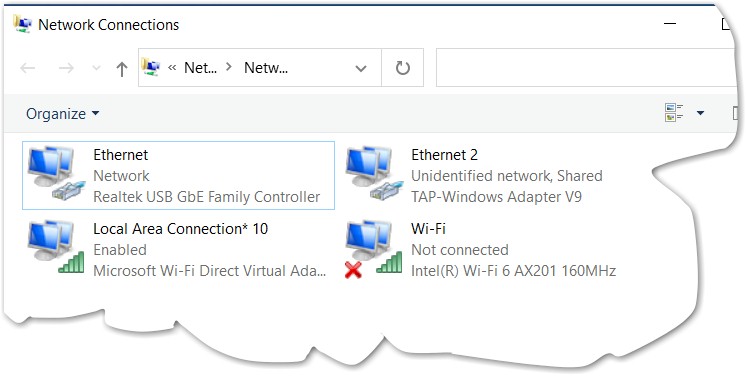
The ethernet or WiFi network interface acts like the main gates of your house leading to the driveway outside. So, when we use our computer to browse the internet with a VPN enabled, our privacy remains protected from others who shouldn’t have access. It encompasses information that may surprise you upon examination:
- The actual IP address of the device you use and your identity is related to the IP address if you use the uplink your ISP provided to access the internet.
- Which web pages have you accessed, how long do you stay on the web pages, etc.? This is the formation that helps others know about your personality.
- The digital fingerprint of your device, such as device model, screen resolution, operation system, the browsers you use, etc. The digital fingerprint of the device helps identify you uniquely.
- Any information that you enter in the form on the web page. Such as the email address, phone number, user name, etc., when you register for a Newsletter or download a free ebook. All this information will help others identify you.
- The credentials you provided when login into the websites. For example, the membership website in which you have your payment information stored there. The payment information could be used to identify you.
This is how a VPN operates to safeguard your communication: by encrypting the data, making it indecipherable to hackers who might intercept it during transit.
And a new IP address of the VPN network has been assigned, so anyone at another end of the VPN tunnel would have no idea where it comes from. And they can’t use the IP address to identify you.
Data encryption is the fundamental element of security in our daily digital lives. Sending sensitive data that is not encrypted is simply foolish. Our goal is to protect our privacy, meaning data is the most important thing. Therefore, encrypting the data when transmitting it is an integral part of any security plan. That is what the VPN provides.
It’s essential to know all communication channels on your device
When you find that the water in your bucket gradually becomes less, you will first find the cracks that leak the water. Then you could figure out the way to patch them.
When we talk about protecting your privacy during the internet era, we need to find all the possible ways that leak our personal information and identity. Let me share with you what my research results are:
All the communication channels on your smartphone
- WiFi network interface: You use it to get access to the internet or local network. Your adversaries could intercept all information while it is transmitted over WiFi or the internet. And they also could use this interface as the gateway to collect the information on the phone.
- Cellular radio interface: You use it to make a call, access the internet, etc. Your risk is the same as the WiFi network interface mentioned above.
- Bluetooth interface: You use it to transfer files over short distances, connecting to speakers, fitness trackers, and wireless headphones. Your adversaries could use it to collect all data on the phone.
- GPS/GNSS: You use it while driving, guided by Google Maps. It uses satellite signals to determine the location of a smartphone. So your adversaries could make use of it to locate where you are or track you.
- NFC(Near Field Communication): It uses as a way of short-range and high-frequency data exchange between two devices. It can even use as a trigger to start an app or take actions on the phone. Its expected usage is to transform your phone into a payment tool. Indeed, your adversaries can make use of it as a way to collect all information on the phone.
- USB Type-A or USB-C: This is the port on your smartphone used for battery recharge, transporting files such as documents, photos, videos, and audio, connecting with keyboard, mouse, external hard drive, game controller, and transferring video data to monitor. It can leak all data and information on the smartphone as apps are installed, all data produced by apps and the phone’s owner, and information that can identify the phone and you-the phone’s owner.
All communication channels on your laptop
Generally, a common laptop on the market would have some communication channels as in the following list:
- Ethernet network interface(RJ-45): You use it to connect to the router via a CAT5 or CAT6 cable in order to access resources on the local network or the internet. As read above, your adversaries or hacker could intercept the information related to your privacy while they are transmitted over the network or the internet, or they could collect the information by intruding into your laptop via this interface.
- WiFi interface: You usually use it to connect to the WiFi hot spot in the airport, hotel room, or coffee shop to access the internet. Or use it to connect to the company network in your office. The risk is the same as the ethernet network interface mentioned above.
- Bluetooth interface: You use it to connect a headphone, mouse, etc., or transfer files with your smartphone. Your adversaries could use it to collect all data on the laptop.
- Cellular data interface: This allows you to connect to cellular networks, similar to your smartphone, and allows your laptop to use cellular data when a wired or wireless connection is unavailable. As the same as it is in the smartphone, your adversaries could intercept all information while they are transmitted over mobile internet. And they also could use this interface as the gateway to collect the information on the laptop.
- USB interface: You use it to insert a USB flash drive, extender adapter,…etc. Your adversaries or a hacker could use it as a gate to intrude into your laptop and collect any information he wanted.
- Thunderbolt port: It is used to provide high bandwidth for connecting high-speed devices, and it has the exact connecter as USB-C. The risk is the same as the USB interface.
You may ask, “What if I have a tablet?” Well, you can refer to the ideas about the smartphone. They are actually quite similar.
Understanding What VPNs Can and Can’t Do in Protecting Communication
As you’ve learned from the subhead on how VPNs keep your communications secure and safe, the VPN picks up communication data or traffic based on the IP address, port number, and protocol associated with them, then routes them through the encrypted tunnel it creates.
Therefore, any communication data that lacks these properties (IP address, port number, and protocol) will not be picked up by the VPN, nor will it be encrypted and routed through the tunnel established connecting to the VPN server on the other end.
Keep that in mind. You can make a list of communication channels that VPNs can protect and those that VPNs don’t protect:
The communication channels the VPN protect
The VPN will protect all communication that travels over the internet. They are:
- WiFi network interface
- Cellular radio interface
- Ethernet network interface(RJ-45):
Either on the laptop or the smartphone.
The communication channels the VPN doesn’t protect
All communication traffic that won’t go through the internet are:
- Bluetooth interface
- Cellular data interface
- USB interface
- Thunderbolt port
- GPS/GNSS
- NFC(Near Field Communication)
In this internet era, our devices have various methods of communicating with the outside world. While these devices collect and store a lot of our personal information, these communication channels serve as vulnerabilities where our privacy can leak.
Using a VPN to encrypt internet communications is just the first step in establishing a foundation for protecting our privacy. We must also be vigilant in identifying and addressing other potential vulnerabilities to safeguard our privacy.
Here are some measures you can take:
- Use anti-virus software.
- Keep your devices and apps up-to-date.
- Exercise caution when clicking links or opening attachments; only do so if you are certain of their content and necessity.
In any case, adopting a multi-layered approach is essential for ensuring our privacy remains protected.
Does a VPN protect my email communications?
The VPN does protect your email communication in case your email server is on the same server where the VPN server is residing, and the device on which the email client runs has a VPN installed and running. That way, all communication will be encrypted while you use the email client to send or receive emails from the email server.
However, if you use the VPN provided by a VPN service, in most email usage scenarios, there is no VPN protection from where you leave the VPN connection to the email server. A hacker or your adversaries could intercept the email data there.
So, if you want to use a VPN to protect all email communication, you must implement a VPN on your email server. You also need to configure the email client to connect to the VPN server. When the email client and the server are connected through the VPN, all communication between them is encrypted, making it more difficult for the hacker or your adversaries to intercept and read email data.
Does a VPN protect my phone conversations?
I would say it’s possible to utilize a VPN to protect your phone conversations from eavesdropping. However, relying solely on the VPN alone cannot fully provide the protection you might expect. To achieve comprehensive privacy, you should combine an end-to-end encrypted voice call app with a VPN as part of your privacy strategy.
If you wish to keep all your voice calls private and prevent adversaries from eavesdropping on your calls, you should follow these steps:
- First, select an end-to-end encrypted voice call app, such as WhatsApp, Signal, or Facebook Messenger.
- Install it on your smartphone.
- Complete all necessary steps, such as user registration.
- Start a VPN app on your smartphone.
- Then, connect to a VPN server.
- Once the VPN connection is established, use the chosen voice call app to make your call.
However, it’s important to note that the VPN does not encrypt data transmitted via the cellular network. Therefore, if you want to secure your voice conversations over the cellular network, this method will not be effective.
To avoid eavesdropping during your phone conversation, you must make calls over the internet using both a VPN and an end-to-end encrypted voice call app.
Summary
In the era we live in, our dependencies on devices such as smartphones, laptops, and tablets can unknowingly expose our privacy in ways we couldn’t have imagined, from our identities to our daily online activities, location, and connections with others. If adversaries gather this information, it could spell disaster for our lives and families. Using a VPN is the initial step to safeguard yourself, yet it only secures communication data passing through the Ethernet and Wi-Fi adapter. There are numerous other channels that require attention. Nonetheless, recognizing these vulnerabilities is a crucial starting point for protecting our privacy and security in the digital age.

